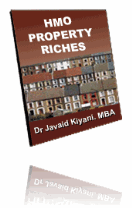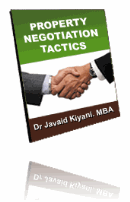 Houses in Multiple Occupation (HMOs) have received a lot of press attention recently, both good and bad. As a result, people are now either wishing to jump onto the HMO bandwagon, or want nothing to do with them.
Houses in Multiple Occupation (HMOs) have received a lot of press attention recently, both good and bad. As a result, people are now either wishing to jump onto the HMO bandwagon, or want nothing to do with them.
If you have any interest in property investment whatsoever, you must familiarise yourself with HMO regulations.
Landlords already running HMOs in England had until 3rd July 2006 to present their applications to their local councils. Any landlord who owns a property that has been let out to sharers may thus be breaking the law if he has not already registered that property.
From 6th April 2006, the Housing Act 2004, has meant that there is a new definition of a House in Multiple Occupation (HMO). Anyone considering a career in property investment in the UK should familiarise themselves with the Housing Act 2004. You can easily download this from the internet.
HMO legislation has been introduced for several reasons:
• To improve the condition of rented housing stock.
• To reduce the number of unscrupulous landlords letting substandard and potentially dangerous property.
• To improve management standards of rented property.
• (Indirectly) To increase revenue for local councils through what is effectively a landlord’s tax.
• (Indirectly) To compile a register of rented property stock.
It is hoped that HMO legislation will result in a much better deal for tenants by removing rogue landlords from the system. However, as with most things, the better landlords will now have to go through additional red tape to provide a similar service to what they have already been providing.
To get a HMO licence you will need to submit a completed application form obtainable from your local council. As part of your application, you will need to include floor plans providing room sizes and an indication of current fire precautions in your property. You will be required to prove the safety of any fire detection system by providing a certificate issued by a suitably qualified engineer.
You will also need to submit a current Gas Safety Certificate. You can obtain this from any Gas Safe (formerly CORGI) registered engineer. An electrical safety inspection will also need to be conducted by a qualified electrician and an electrical safety certificate issued.
If you are providing any electrical appliances, you will need to have a PAT (Portable Appliance Testing) certificate issued by an electrician. This will cover items such as electric kettles and toasters etc.
You will also need to prove that you have suitable management arrangements in place. For example, deposit procedures, tenancy agreements and procedures for dealing with anti-social behaviour.
The final requirement is for you to be a ‘fit and proper’ person, by providing a Criminal Records Bureau (CRB) check. This will need to be dated within the previous six months. Your local authority will inform you if this is required.
Learn how to get a HMO licence here:
http://www.hmopropertyriches.com/








